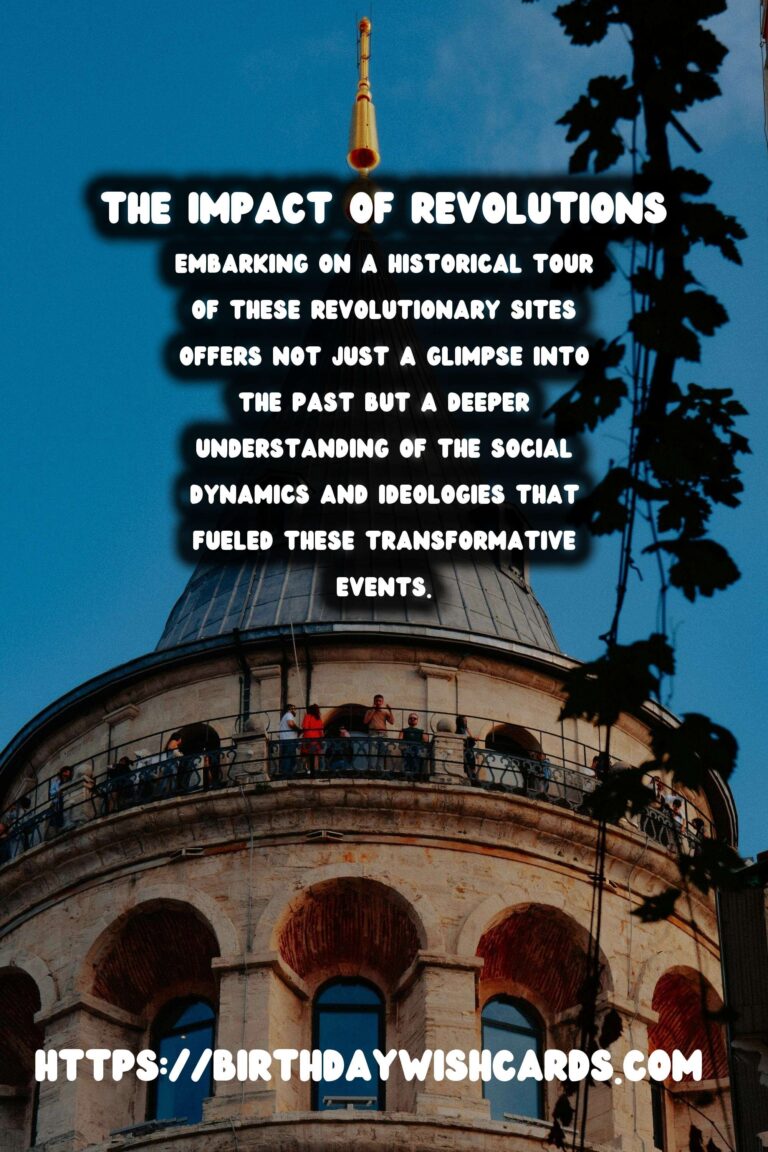
Revolutionary movements have been pivotal in shaping the course of history, altering the trajectory of nations and sparking profound change in societies. From the American Revolution to the upheavals in France and beyond, these movements broke old chains and heralded new eras defined by democracy, freedom, and the rights of individuals. Embarking on a historical tour of these revolutionary sites offers not just a glimpse into the past but a deeper understanding of the social dynamics and ideologies that fueled these transformative events.
The American Revolution: Cradle of Democracy
When one thinks of revolutionary movements, the American Revolution often comes to mind first. This rebellion against British imperial rule not only set the stage for the formation of a new nation but also became a symbol of democratic ideals worldwide. Sites such as the Independence Hall in Philadelphia, the Boston Tea Party Ships and Museum, and the battlefields of Lexington and Concord are crucial stops for those interested in American history. Visiting these places offers an immersive experience into the birth of a nation and the struggles of its forebears.
The French Revolution: A Cry for Liberty, Equality, and Fraternity
The French Revolution stands as another watershed moment in world history, fundamentally reshaping France and influencing political thought globally. The storming of the Bastille, the execution of Louis XVI at the Place de la Concorde, and the echoes of Robespierre’s voice in the streets of Paris are etched into the annals of revolutionary history. Modern visitors to Paris can explore the Musée Carnavalet dedicated to the history of Paris, including the Revolution, and the Palace of Versailles, which epitomizes both the opulence of the monarchy and the Revolution’s profound societal impacts.
Revolutions in South America: Liberation and Identity
Across the ocean, South American revolutions of the early 19th century were instrumental in reshaping the continent. Leaders like Simón Bolívar and José de San Martín initiated movements that would result in independence from Spanish rule. Tourists can explore key sites such as the Bolivar Square in Bogotá, Colombia, and the Cathedral of Buenos Aires in Argentina, where revolutionary thoughts brewed and historical figures are honored. These locations offer insights into the struggles and triumphs that crafted the diverse and vibrant tapestry of South American identity.
The Lasting Impacts of Revolutionary Movements
Revolutions have far-reaching impacts that often extend beyond their immediate political objectives. They challenge established norms, inspire future movements, and contribute to cultural and ideational shifts. In many ways, the legacy of these revolutions persists today, as many nations continue to grapple with issues of equality, freedom, and governance. Traveling to and studying these landmark sites offer invaluable lessons and reminders of the constant cycles of change and adaptation humanity undergoes.
Conclusion: Embracing History Through Travel
Taking a journey through historical revolutionary sites is more than a visit to a museum or a classroom on the move; it is a portal into the turbulence, transformation, and triumph of human endeavors. Such excursions make history tangible, breathing life into books and classrooms with real, lived experiences. For the curious traveler and dedicated historian alike, these tours are an essential part of understanding the impact of revolutions on our modern world.
Revolutionary movements have been pivotal in shaping the course of history, altering the trajectory of nations and sparking profound change in societies. Embarking on a historical tour of these revolutionary sites offers not just a glimpse into the past but a deeper understanding of the social dynamics and ideologies that fueled these transformative events. 
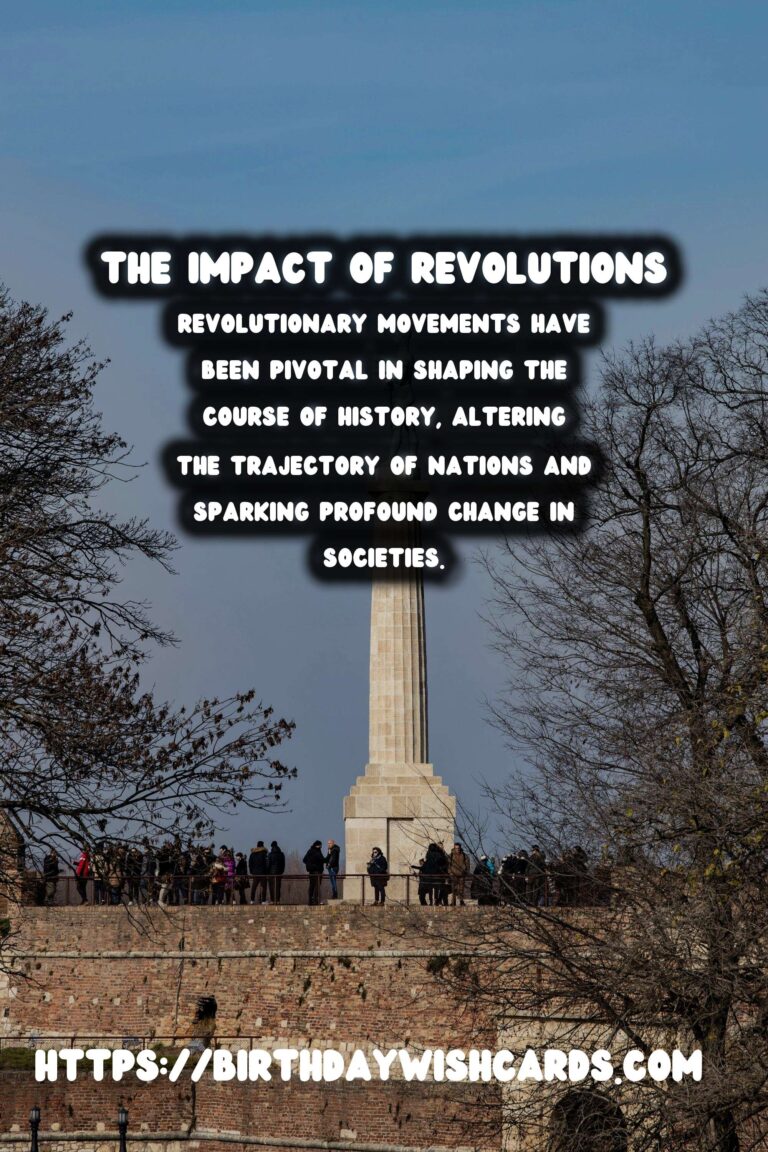
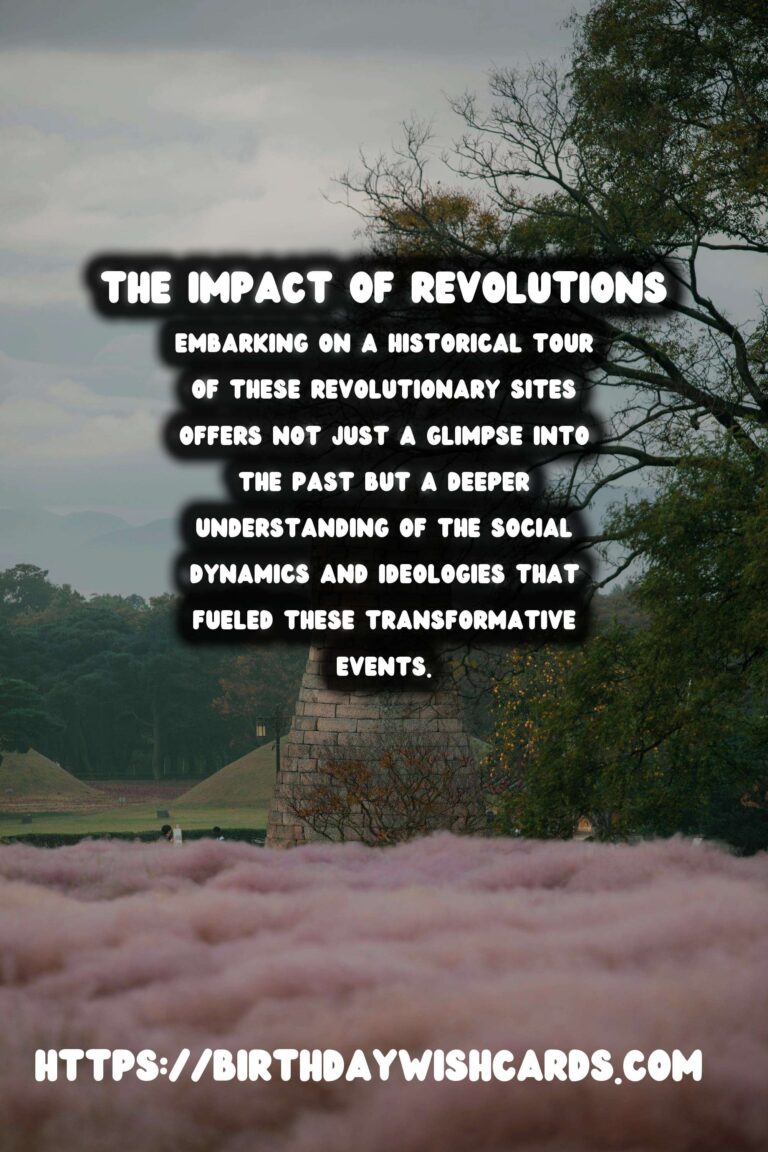
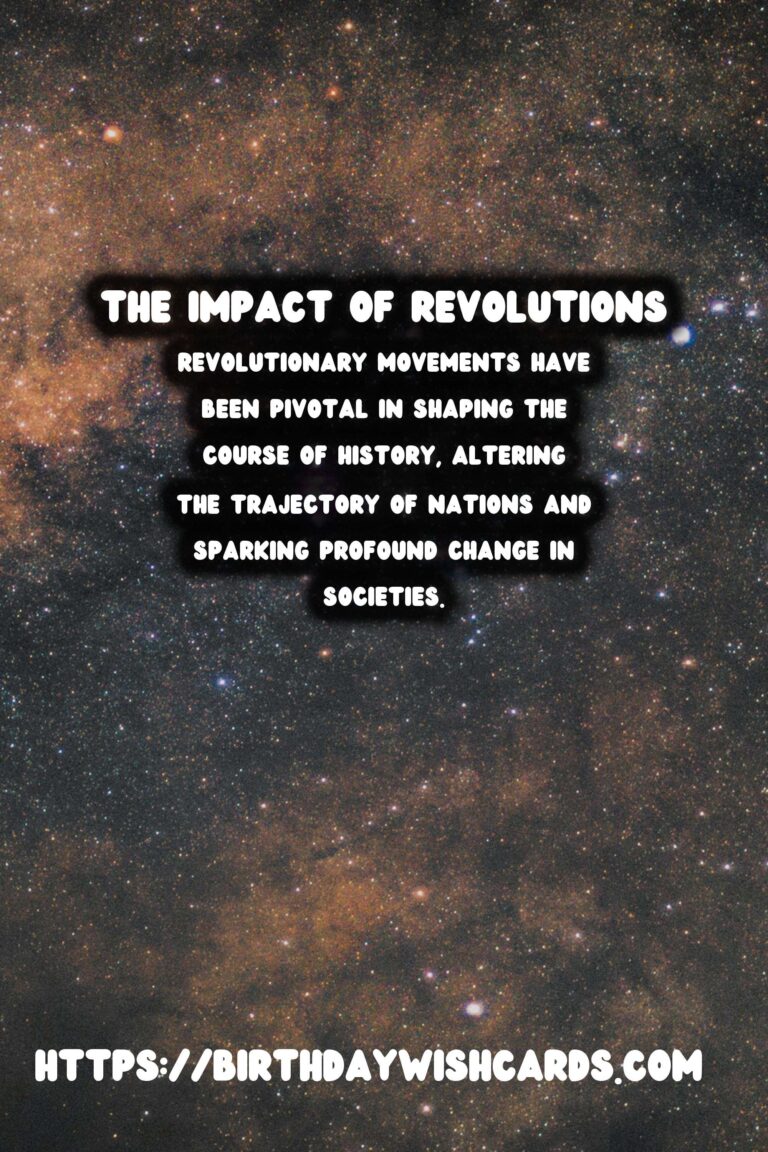
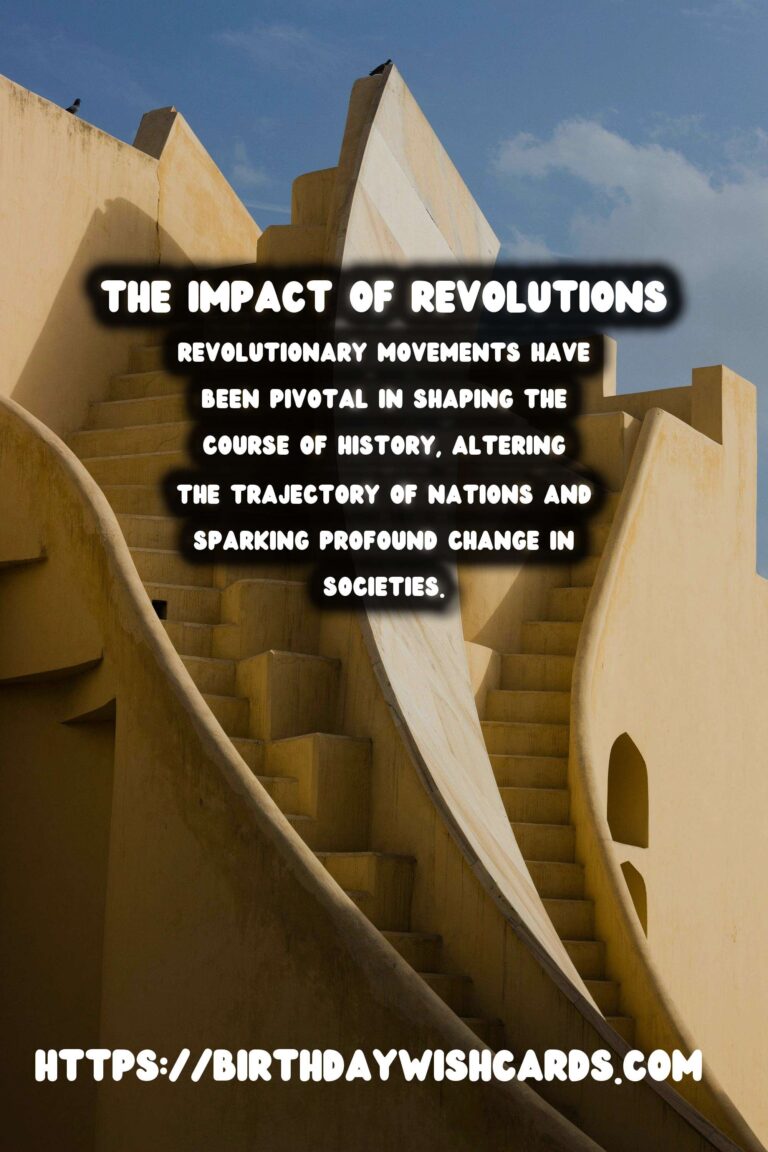
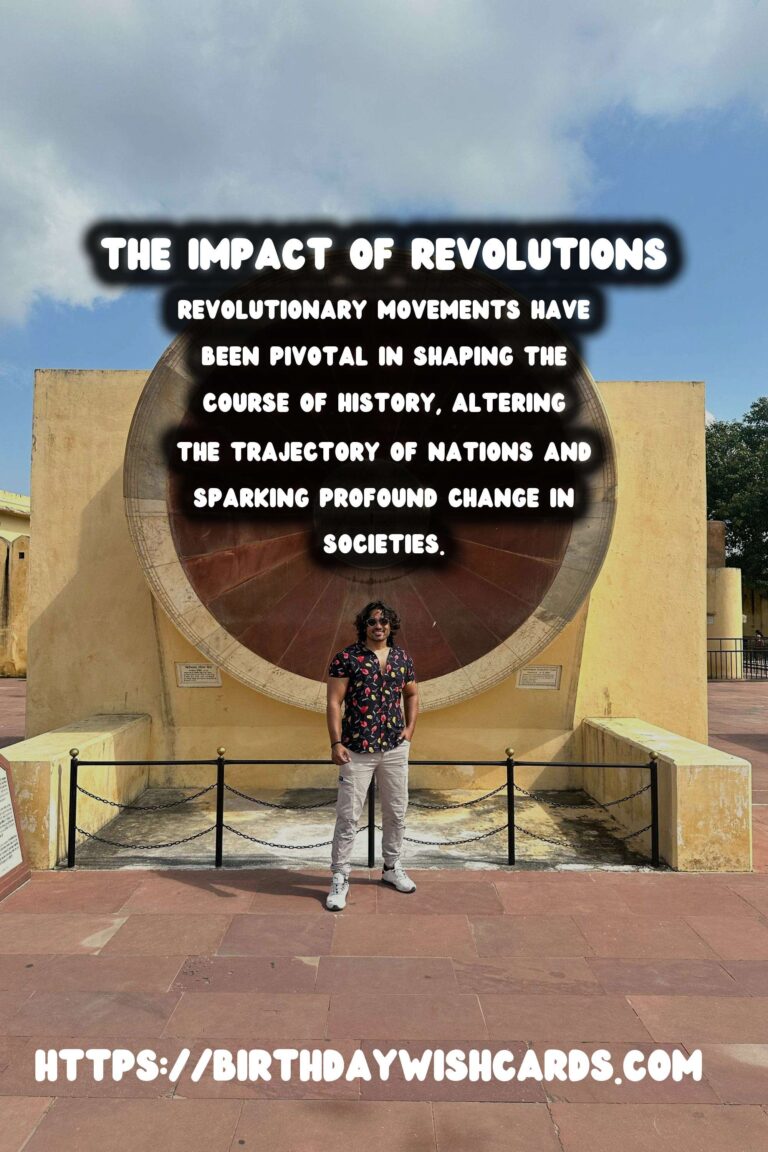
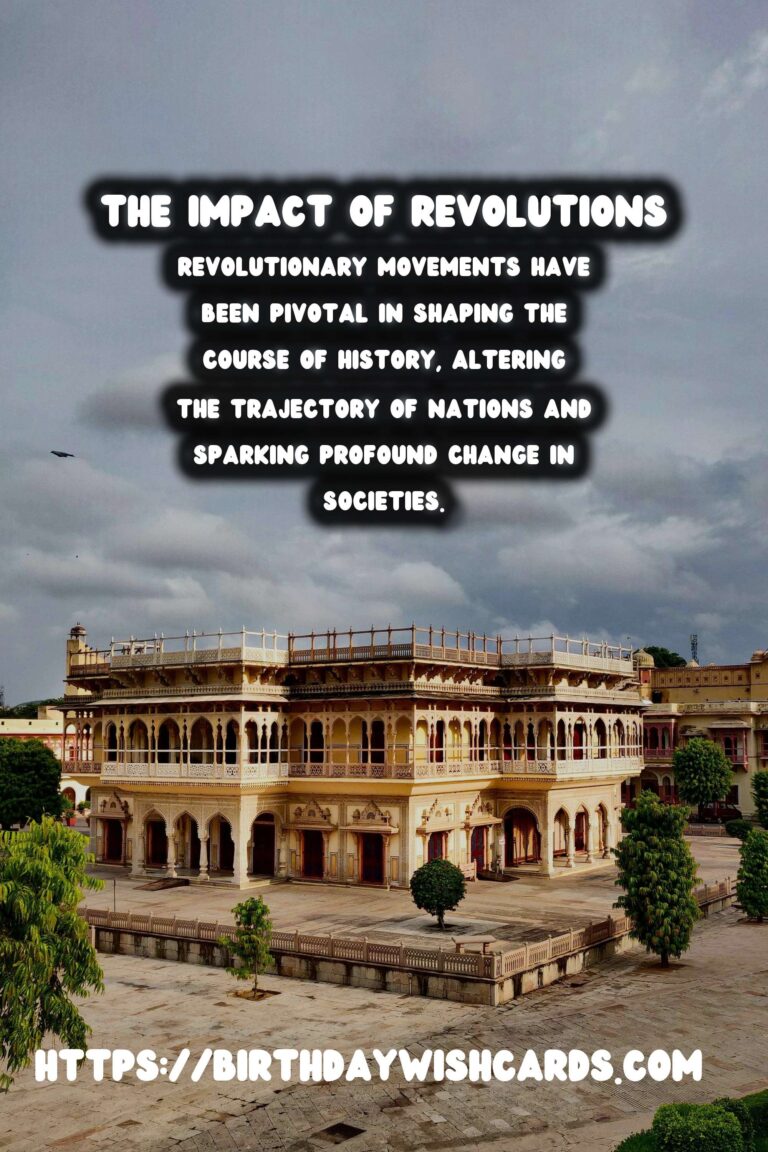
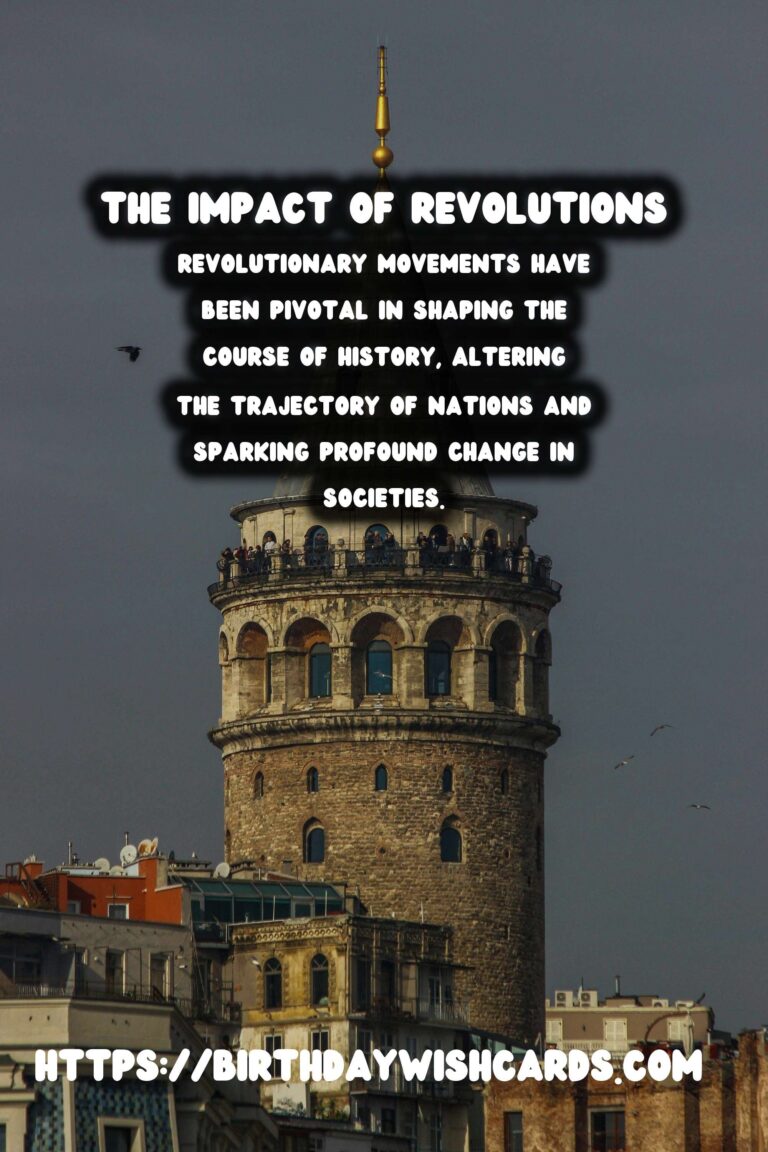
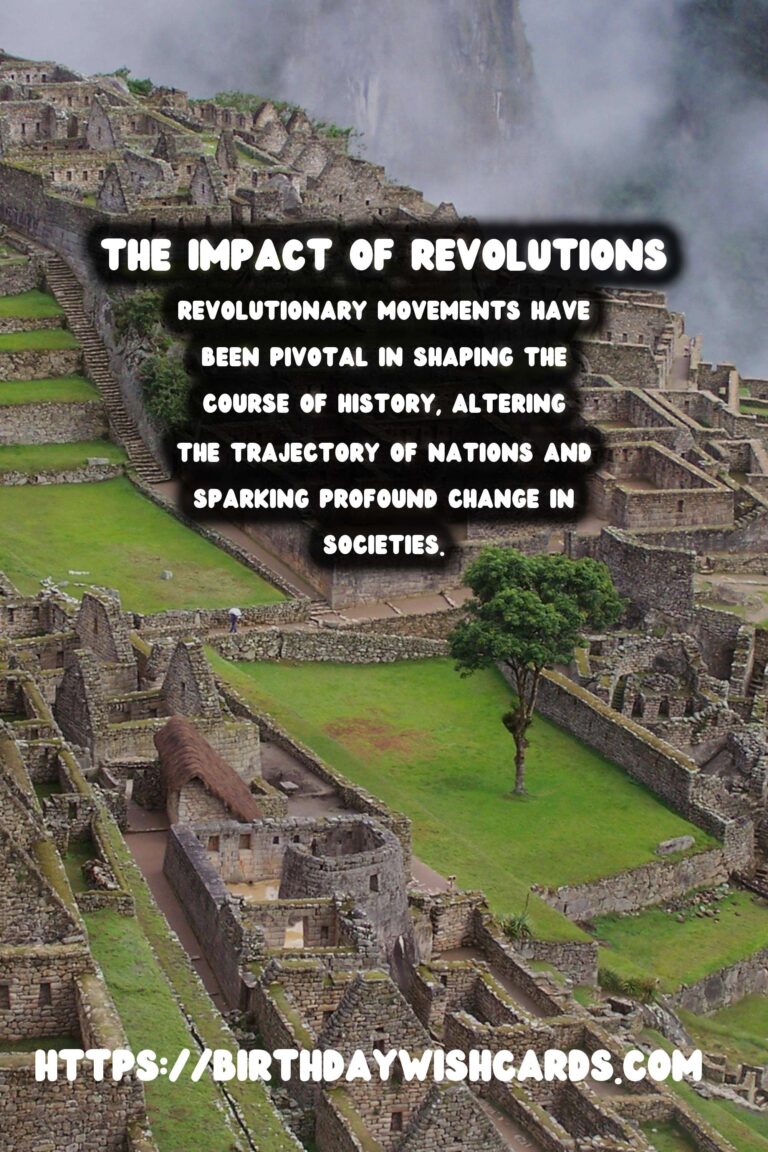
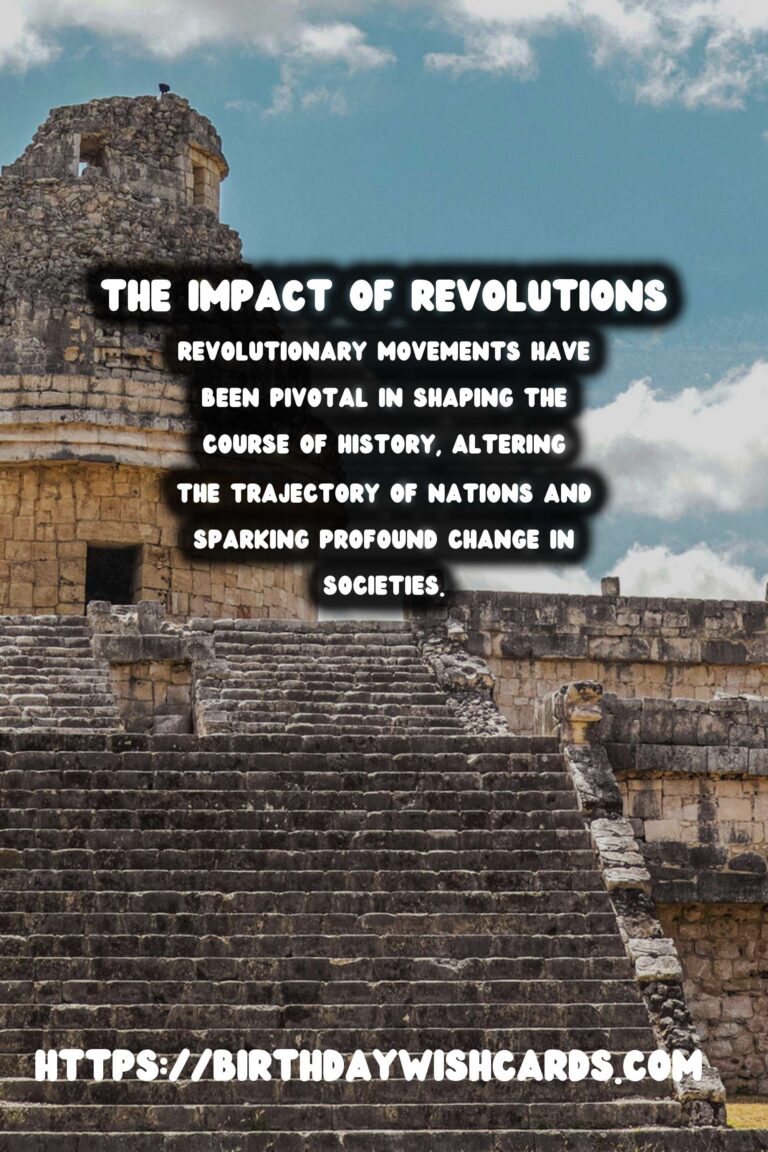
#RevolutionaryHistory #HistoricalTours




